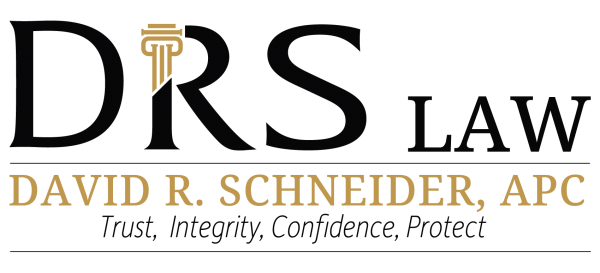Calling All Business Owners, Calling All Landlords:
Filing a Beneficial Ownership Information Form – Do You Have a Legal Obligation to Do So?!
In today’s financial landscape, compliance with regulatory requirements is not just a matter of best practices—it is a legal necessity. One such crucial compliance requirement is the Financial Crimes Enforcement Network (FinCEN) reporting for entities. This blog aims to shed light on why these reporting requirements matter, the forms involved, and the consequences of non-compliance.
FinCEN is a Law Enforcement Agency
FinCEN is a bureau of the U.S. Department of the Treasury. The Director of FinCEN is appointed by the Secretary of the Treasury and reports to the Treasury Under Secretary for Terrorism and Financial Intelligence. FinCEN’s mission is to safeguard the financial system from illicit use and combat money laundering and promote national security through the collection, analysis, and dissemination of financial intelligence and strategic use of financial authorities.
FinCEN carries out its mission by receiving and maintaining financial transactions data; analyzing and disseminating that data for law enforcement purposes; and building global cooperation with counterpart organizations in other countries and with international bodies.
FinCEN exercises regulatory functions primarily under the Currency and Financial Transactions Reporting Act of 1970, as amended by Title III of the USA PATRIOT Act of 2001 and other legislation, which legislative framework is commonly referred to as the “Bank Secrecy Act” (BSA). The BSA is the nation’s first and most comprehensive Federal anti-money laundering and counter-terrorism financing (AML/CFT) statute
How Does All of This Relate to Me?
Many persons operate small businesses. It has often been quoted that it is small business that is the backbone of the finances of the country. Of these business, some will be sole proprietorships – people providing a service or selling goods in their own name under their own SS#. However, there are a great many small businesses which have incorporated or registered as limited liability companies (LLC). These are legal entities recognized by state and federal agencies to conduct business in the name of the entity using a number assigned to this entity other than the business owner’s SS# using an EIN or TIN. An example would be someone who has a rental unit / house and that rental is held in the name of a corporation or LLC.
These persons, operating these small companies who prepare their own taxes with or without help, figure they are reporting to the IRS through their schedules, the “government knows” who they are, and may not pay attention to a FinCEN bulletin, even if they received it!
When it comes to this critical reporting, there will be no exceptions and it appears there will be no grace period after 12/31/2024.
For all legal entities, corporations, limited liability companies, limited liability partnerships, professional corporations, partnerships and any other entity which has obtained an EIN (Employer Identification Number) or TIN (Taxpayer Identification Number) you are required by law to complete the Beneficial Ownership Information Report (BOIR) and the clock is ticking.
For any legal entity which was created in 2024, you had a 90-day window from the date of formation (not the date you started business) and all other entities previously created by 12/31/2024 to comply with the reporting requirements.
Why Compliance with FinCEN Reporting Matters
The Financial Crimes Enforcement Network (FinCEN), a bureau of the U.S. Department of the Treasury, plays a vital role in combating money laundering, terrorist financing, and other financial crimes. For entities, compliance with FinCEN’s reporting requirements is essential for several reasons:
- Legal Obligation: Adhering to FinCEN regulations is not optional. Entities are legally required to file certain reports, and failure to do so can result in severe penalties.
- Prevention of Financial Crime: By reporting suspicious activities and maintaining transparency, entities contribute to the broader effort of preventing financial crimes, which helps maintain the integrity of the financial system.
- Avoidance of Penalties: Non-compliance can lead to significant fines and legal repercussions. Meeting reporting obligations helps entities avoid these costly and damaging consequences. Failure to comply has very stiff penalties of $500 a day up to $10,000, per entity!
Key Forms and Reports
There are a large number of FinCEN requirements for entities to file several key forms and reports. This blog is centered on the newest one and the one form likely to snare a significant amount of individuals and small business caught unaware:
FinCEN Form 4022 (Beneficial Ownership Information Report)[BOIR]:
- Who Needs to File: All legal entities which have been assigned a reporting number – a number other than the SS# of the owner.
- Purpose: The basic concept underlying FinCEN’s core activities is “follow the money.” The primary motive of criminals is financial gain, and they leave financial trails as they try to launder the proceeds of crimes or attempt to spend their ill-gotten profits. FinCEN partners with law enforcement at all levels of government and supports the nation’s foreign policy and national security objectives. Law enforcement agencies successfully use similar techniques, including searching information collected by FinCEN from the financial industry, to investigate and hold accountable a broad range of criminals, including perpetrators of fraud, tax evaders, and narcotics traffickers. More recently, the techniques used to follow money trails also have been applied to investigating and disrupting terrorist groups, which often depend on financial and other support networks.
- What is needed?:
- Name(s): the legal names of all beneficial owners e.g., could be husband and wife
- Date of Birth: DOB of all beneficial owners
- Address: not just of the business but the residential address of all beneficial owners
- Identification: driver’s license or passport information, including pictures for upload and SS#.
Consequences of Non-Compliance
Failure to comply with FinCEN reporting requirements can lead to severe penalties:
- Monetary Fines: Penalties for non-compliance can be substantial. For instance, failing to file BOIR can result in a penalty of $500 per day in violation up to $10,000 per violation. If the violation is deemed willful, the penalty can be increase.
- Criminal Charges: In extreme cases, entities and individuals can face criminal charges, leading to additional fines and imprisonment.
- Reputational Damage: Non-compliance can damage an entity’s reputation, leading to a loss of business and trust among clients and partners.
- Operational Disruptions: Entities found non-compliant may face additional scrutiny, audits, and operational disruptions, which can impact business efficiency and growth.
Ensuring Compliance
To ensure compliance with FinCEN reporting requirements, entities should:
- Stay Informed: Regularly review FinCEN guidelines and updates to stay current with reporting requirements.
- Implement Internal Controls: Establish robust internal controls and procedures for monitoring and reporting financial activities.
- Seek Professional Guidance: Consult with legal and financial experts to navigate the complexities of FinCEN regulations and ensure accurate reporting.
- Regular Training: Train staff involved in compliance processes to recognize and address potential reporting obligations and issues.
Bottom Line: Stay On Top of Your FinCEN Compliance
FinCEN reporting requirements are a critical aspect of maintaining financial integrity and preventing illicit activities. For entities, understanding and complying with these regulations is not just a legal obligation but also a crucial step in protecting their operations from severe penalties and reputational damage. By staying informed, implementing strong internal controls, and seeking professional guidance, entities can ensure they meet their FinCEN reporting obligations and contribute to a more transparent and secure financial system.
Feel free to share this blog with colleagues and partners to help spread awareness about the importance of FinCEN compliance.
If you need assistance with creating and filing your BOIR, we strongly encourage you to contact the Law Offices of David R. Schneider, APC, as soon as possible. We’ll ensure your form is processed promptly and accurately. Call us at (805) 374-8777 or visit our contact page to schedule a consultation.

